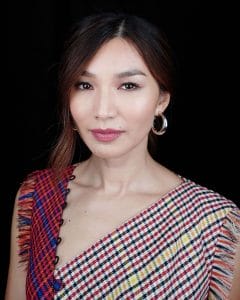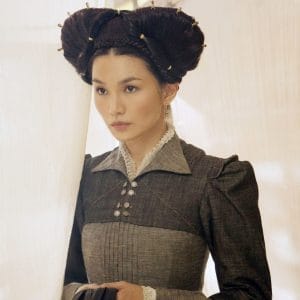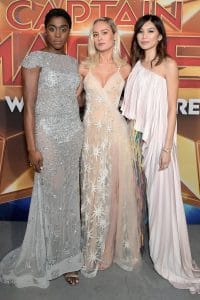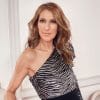
Getty Images
When Captain Marvel, the Marvel Cinematic Universe’s (MCU) first female-led film in its 11-year history, crash-landed into theaters this past International Women’s Day, it broke numerous records at the box office. Not only did it become the biggest worldwide opening of a female-fronted film, but it also scored the second-largest opening of any comic-book adaptation ever. The film touts three very different women within its narrative: the titular Captain Marvel a.k.a. Carol Danvers (Brie Larson); her best friend, single mother and air force pilot Maria Rambeau (Lashana Lynch); and Minn-Erva (Gemma Chan), the Kree soldier with a slightly villainous turn. While female fans might argue about what these particular characters mean to them—the trio has received both criticism for not being feminist enough as well as praise for being perfect for young girls—the fact that three contrasting women (two of whom are women of color) appear in the same movie is a big step in the right direction for the MCU.
Chan knows a thing or two about being at the forefront of Hollywood’s representation conversation. After a year of watershed projects like the rom-com blockbuster Crazy Rich Asians (the first studio-backed film in more than 25 years to feature an all-Asian cast, director and writer) and the critically-acclaimed period drama Mary Queen of Scots (featuring two women as leads, a female director, and multiple LGTBQ+ characters and actors of color), Chan is actively participating in projects that are changing the lens of the mainstream film industry. As we sit in the Beverly Hills hotel where Captain Marvel is camped out during a stop on its global press tour, Chan is serene but can’t contain her excitement while reflecting on what the previous year has brought to her.

Chan as Minn-Erva in a Captain Marvel poster, Disney
“I feel very lucky and very proud to have been part of all of [those] projects,” she says. “This one in particular is really important for little girls and young women to watch and to feel empowered and to feel that anything is possible for them—that they can dream big. Some of them may fall, but then they can get back up, and that’s okay.”
Chan is no stranger to challenges or dreaming big. A graduate of Oxford University’s Worcester Law School, she was well on her way to becoming one of London’s top attorneys until she did a complete one-eighty and decided to enroll at the prestigious Drama Centre London. Though she has always been a performer—she was a skilled violinist at the age of sixteen—this was the moment she decided to pursue performing as a career. But as Chan recounted in an interview last year, a teacher warned her after she graduated that because she is of Asian descent, forging a career would be difficult, since many of the U.K.’s productions are largely period dramas that have no roles for her.

Chan as Bess of Hardwick in Mary, Queen of Scots, Liam Daniel Everett
Though that teacher was very wrong in predicting how Chan’s career might unfold, becoming a trailblazer of Hollywood’s inclusion movement comes with its own challenges, particularly when entering a multi-billion dollar franchise. In 2017, Kelly Marie Tran became the first Asian-American woman to play a leading role in the Star Wars franchise, as Rose Tico in The Last Jedi. While many cheered for the new addition, a toxic group of fans rabidly attacked the actress with racist and sexist messages across the internet, leading the actress to delete all her social media accounts at a time when she should have been celebrating her success. “It is kind of a sad reality that the worst places on the Internet can turn their attention onto you,” Chan says of Tran’s “awful” ordeal. “I really hope that doesn’t happen with this. But that fear of that happening can’t stop you from telling a story that you’re passionate about, or being part of a project that you’re passionate about. Otherwise, you leave that space to the worst voices.
Captain Marvel was a big target of sexist trolls, so much so that review aggregator site Rotten Tomatoes completely overhauled its audience review policy prior to release, a huge step for a site often overtaken by commenters who’ve never actually seen the film. The targets of these trash campaigns have been mainly female-led films, most famously 2016’s all-woman fronted Ghostbusters. But a much more important conversation has formed around Captain Marvel in the weeks since its opening, overshadowing the grumblings of men behaving like toddlers getting their toys taken away. Women from all backgrounds have taken to social media to discuss what heroism and strength means to them, and how the movie’s themes land with audiences. Though some argue that through today’s lens, a film can’t get by on girl power alone, others say the movie highlights the empowerment of not giving a fuck.No matter which side you lean toward, Captain Marvel has inspired a crucial discourse about representation and the future of women onscreen. And it’s important to note these varying critiques: Feminism isn’t one size fits all, nor does it mean the same thing to all women.

Chan (right) with, clockwise: Brie Larson, Algenis Perez Soto, Djimon Hounsou, and Rune Temte in Captain Marvel, Disney
For women of color, feminism and equality is a complicated subject that stems from a historical suppression of their voices within in a movement that is supposed to be for all women. “Feminism hasn’t always been inclusive,” Chan says thoughtfully. “For me, it’s all about intersectionality. I don’t wake up and one day I’m a woman, and the next day I’m an Asian. I’m always a woman of color. That’s the reality that many of us live in, and you can’t separate that. And this film, you get to see three very different female characters doing their thing. We’re not making a big deal about race.”
Like so many women of color, Chan understands the stress that comes with being a “face” for the community, the pressure to blindly support anything that is supposed to represent you, the missteps that could get you “canceled” or called out if you don’t agree with others from the same community. “Being the only actor of color, as I often was on [other] sets, I felt more pressure, because you are the one representative of your ethnicity or your race in that project. And that is a lot of pressure,” says Chan. Despite the pressure, she hopes the roles she’s getting now will open doors for more inclusive casting and more roles for women and people of color. “I think, now, the more stories we have, and the more diversity, the more inclusion we have in our storytelling, it can take the pressure off, because you’re allowed to be whatever character and portray whatever character it is in that story. You’re not the only one.”

Chan with Lashana Lynch and Brie Larson at the Captain Marvel premiere, Charley Gallay Getty Images
The MCU’s recent additions of characters like Gamora (Zoe Saldana), Black Panther (Chadwick Boseman), Valkyrie (Tessa Thompson), Mantis (Pom Klementieff), M’Baku (Winston Duke), Nakia (Lupita Nyong’o), Shuri (Letitia Wright), Okoye (Danai Gurira), and others has turned the MCU into one of the most diverse franchises in Hollywood. But Chan acknowledges the mistake in waiting so long to put a heroine at the front of her own movie. “[Marvel] realized they need to move things forward a bit. In some ways, this film’s a bit overdue. I mean, 21 [movies]! I’m really glad this film has been made. They can’t really go back now. We’re going in the right direction.”
Chan has also become more mindful in how she selects films she works on. “There is a certain pressure and added scrutiny to what roles you take going forward. And actually, I’m okay with that. Now, when I read a script, I’m not just looking at, ‘Oh, is it an interesting character for me to play? Is that gonna be a challenge?’ I am thinking about, ‘What is that saying? What am I putting out into the world? What is it adding to the conversation?’”
While Chan is in the dark about whether we’ll ever see Minn-Erva again, thanks to Marvel’s super-tight security and secretive development process, she has some ideas about where she’d like to see her character go. “I loved Valkyrie. I love Tessa Thompson. She had so much fun with it. I reckon Minn-Erva and Valkyrie would have fun together. A buddy comedy, perhaps. They could go party together. I think they’d have a great time. Wouldn’t they?” Greenlight this now, Marvel.



